A 62-year-old man sells peanuts under a huge sign that shows the Castro brothers dressed in military uniform. Raúl, much younger than the 86 years he has today, has his mouth open and seems to shout some slogan.
Fidel, who before his death declared that he did not want any iconographic tribute to his person and to whom little case has been done in Cuba, he looks serious and looks at some point with his arm extended.
"They are the ones who have directed Cuba," says the manisero.
"They already did what they were going to do, there will not be any now, now is when it is, when this is going to really get good."
For the first time since the Revolution triumphed in 1959, the country will be headed by someone who is not Castro.
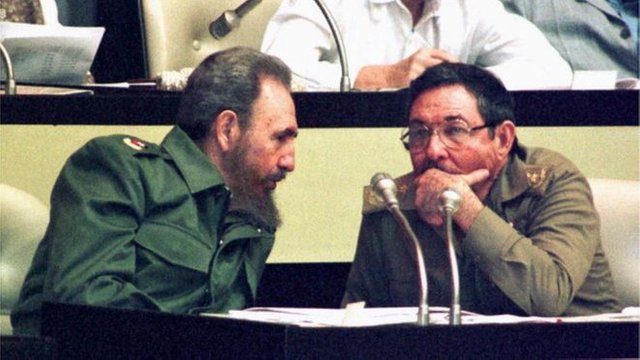
This week, by his own decision, Raúl will leave the position he had agreed to when his brother fell seriously ill: first interim in 2006 and officially in 2008.
Here we tell you the main milestones of the decade of Raúl Castro's government.
1- The thaw with the USA
In separate televised speeches in unison on December 17, 2014, Raúl Castro and Barack Obama declared to the world that their countries were making peace after more than half a century of the Cold War.
The rapprochement, the fruit of secret negotiations between the two nations in which the Vatican mediated, began with a prisoner swap in which three Cuban spies imprisoned in the United States were exchanged for a US contractor imprisoned on the island on espionage charges.
Officially, on July 20, 2015, the two countries resumed diplomatic relations and reopened their respective embassies.
In March 2016, Obama visited Havana, 88 years after the last visit of a tenant of the White House.
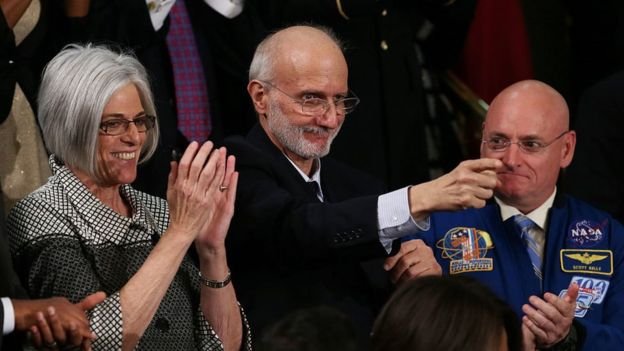
The thaw was seen as a clear achievement of Raúl on which Fidel expressed his reluctance on several occasions.
The commercial and financial embargo imposed by the United States on Cuba since 1962 is still standing and relations between the two nations have suffered a setback since Obama left the White House and the administration of Donald Trump took power.
2- Migratory reforms: Cubans can already travel
In 2007, Rolando launched into the sea. He was tired and that was the solution he found. Armed with two friends a rocambolesca boat to try to leave Cuba.
"There was no alternative, this was very hard and you could not leave, that was the only way to find another life," he says.
Six years later, in January 2013, the government of Raúl Castro eliminated travel requirements and authorized Cubans to legally leave the country for up to two years without losing their property or residence.
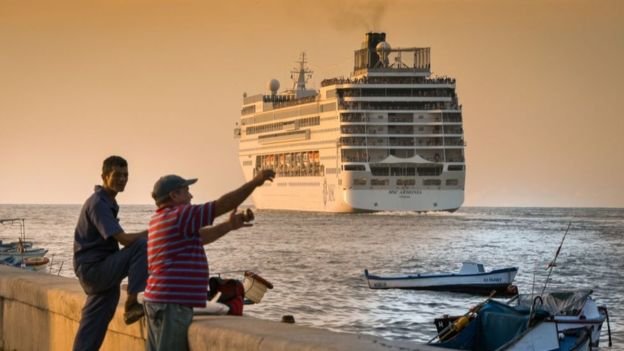
"I do not regret, on the contrary, I'm happy, so nobody has to go through what I went through," says Rolando who now lives in Texas, United States.
Rolando is 38 years old and is visiting the island. Since he crossed the Florida Straits to the open sea in his makeshift boat, he had not returned. "Obviously, if Cubans can travel and finally know the world, the country has to change," he says.
The 2013 immigration reform, which was updated in April 2016 and January 2018, facilitated temporary visits to Cubans who left the country illegally before 2013 - if they did not do so at the Guantanamo naval base - or exceeded the limit of stay abroad.
The new migratory laws meant the end of the exit permit, the so-called "white card" that the authorities had to grant to travel abroad, and the letter of invitation that guaranteed the exit. At present, the only people who still need special permits to leave the island are the doctors and the military.
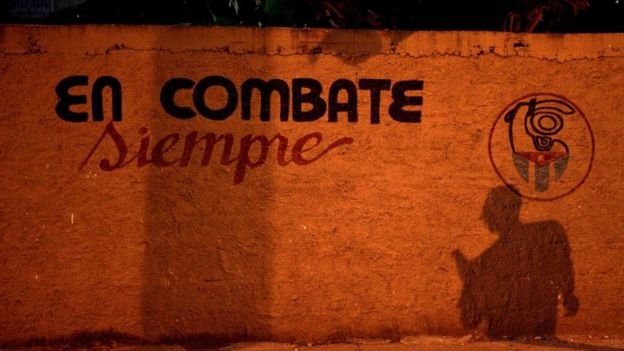
Since the implementation of the reform, Cubans who had emigrated were able to resettle themselves back in the nation.
The so-called repatriates in the last two years amounted to more than 25 thousand citizens.
3- Self-employment: the island opens up to private property
"The salaries of the state are laughable, and more and more people want to have their own, their own earnings, not depend on the government to live," says Alejandra behind a counter.
Alejandra, 22 years old, studies philology at the University of Havana and three times a week "to earn a living" she works in a private cafeteria.
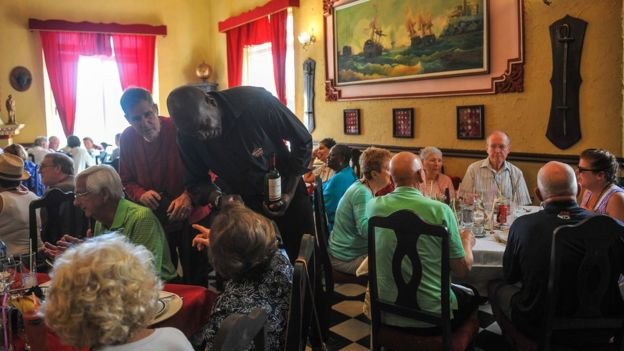
In 2010, the government of Raúl Castro made the decision to expand self-employment in the country. A reform that became an economic and social revulsive on the island.
According to the latest data provided by the Ministry of Labor, the so-called "cuentapropistas" account for about 12% of the country's workforce and the figure amounts to 579,415 people affiliated with private property.
The "preparation and sale of food" (which includes the so-called palates or restaurants) is the most developed activity with 61,000 licenses granted.
There are 58,000 workers dedicated to the transport of cargo and passengers. There are 40,000 licenses authorized to work in the lease of houses and spaces, one of the most demanded modalities.
"It is a pity that now the State has arrested this, nobody understands it, in the end it is a brake on the economic growth of the country", says Alejandra referring to the determination that the Cuban government adopted to stop the delivery of licenses since August of last year. .
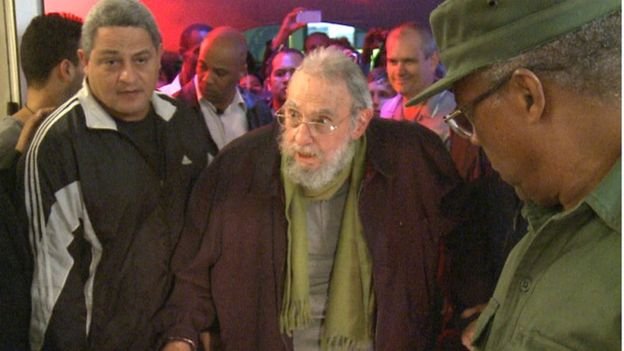
The provision has frozen the rise of private property in Cuba and according to the Ministry of Labor this provision is part of a "systematic process of revision and improvement aimed at correcting deficiencies" in the operation of the non-state sector.
4- Cubans can buy a car and a house. And sell them too
"The car that I had inherited from my father was falling apart because I did not have to keep it and I could not sell it," says Cesar with the back of his body leaning against a car of the Russian brand Lada.
In Cuba, it was not until 2011 that the government authorized the sale of used cars among Cubans.
"I remember that two weeks after the news came out, I sold the car and got out of that torture," says César.
But that first opening did not eliminate the prohibition to buy new cars. The restriction that required having a government permit to acquire a vehicle was eliminated by the government of Raúl Castro on December 19, 2013.
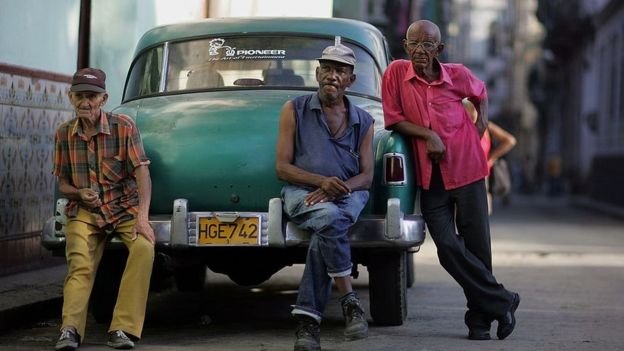
Since the Cuban revolution began in 1959 with Fidel Castro at the helm, the government determined that in order for Cubans to buy a car, they had to obtain a state permit, a privilege only granted mainly to high officials, renowned athletes and artists.
The reform was received with encouragement by the Cubans, but as a dream, because the prices of the cars, established by the government, are within the reach of the pockets of few people on the island.
"Everyone was speechless when we learned about the costs, it's an absurd and abusive thing, nobody understands that in other countries cars have a value and that they multiply it here when they would have to do the opposite because of low salaries. Cubans, "says César.
The prices of cars in Cuba are far from the common costs abroad. For example, a Peugeot 508 costs US $ 262,000, eight times more than its value in the United Kingdom.
Also in 2011, the Cuban state allowed the sale of houses in the country, after maintaining it forbidden for decades, a real estate market emerged that, although limited, continues to grow.

"Revolico", one of the most visited classified sites by Cubans, has more than 40,000 ads in its "buy / sell" section.
5- Internet reaches the island
Public squares and Cuban parks have changed their social dynamics. They are no longer places where people would see children running in the afternoons or take a breeze with their partner.
Since 2013, in Cuba, parks and public squares are workplaces and, above all, the place where Cubans can communicate with the world through a public internet service.
Before that date, it was impossible for most Cubans to have frequent access to the network.
But although the possibilities of connection grow increasingly, the conditions to access it remain archaic and limited by their low quality and high cost compared to Cuban salaries and prices in the rest of the world.
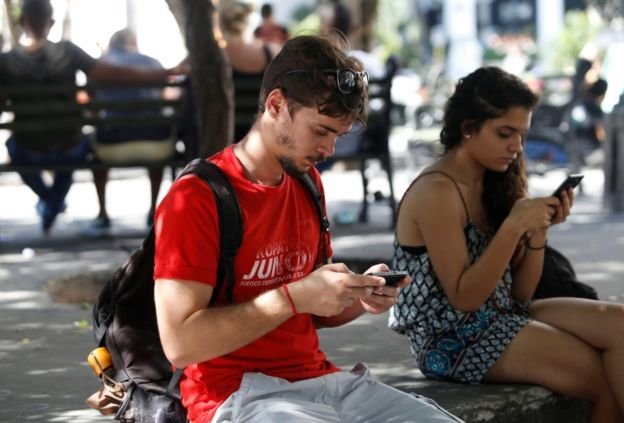
According to data from Etecsa, the only telecommunications company that exists on the island, more than 2 million people have email and have hired 1.5 million permanent navigation accounts.
Throughout the country there are 635 public areas with Wi-Fi connection and the government has begun to provide internet services at home, of which 11,980 households are operating throughout the country.
6- Cubans can go to hotels on their own island
In March 2008, the Cuban government broke the prohibition that prevented the citizens of the island from staying in international tourism hotels.
Until then, only honeymoon couples or students and workers stationed in the state work centers that had a special plan were allowed to stay.
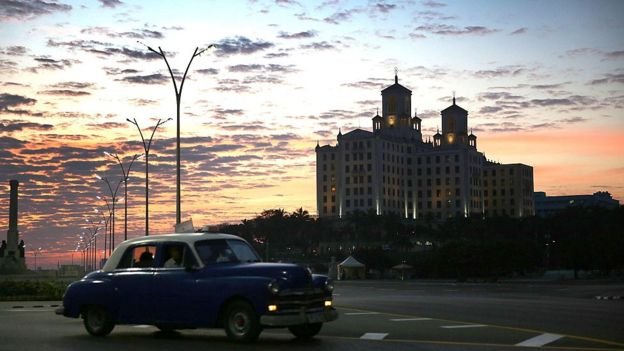
"For us, going to a hotel was the most sublime thing that could happen to us, if we had never been there, it was logical that we should think so," recalls Elier, 37.
Before the new measure, the population with access to Cuban convertible pesos could use the services of hotels such as restaurants, shops and gyms, but not to stay.
"That is one of the great problems of Cuba, that sometimes not even with money one solves things," says Elier, who since 2008 has stayed at several hotels with his family.
After ending the ban, the Cuban authorities justified the measure alleging that tourism suffered from a shortage of rooms and that access to hotels also broke with the social equality of the revolution.
"In the end so many years with the door closed in vain, because when they opened it nothing changed, everything is the same in Cuba," says Elier.
7- Cuba increases foreign investment
The poor state of the Cuban economy meant that the government of Raúl Castro had no choice but to reform a law to grant more incentives to foreign investors.
The formula found was to design a megaport to turn it into the main industrial pole of the island.
The selected site was the port of Mariel, about 45 kilometers west of Havana.
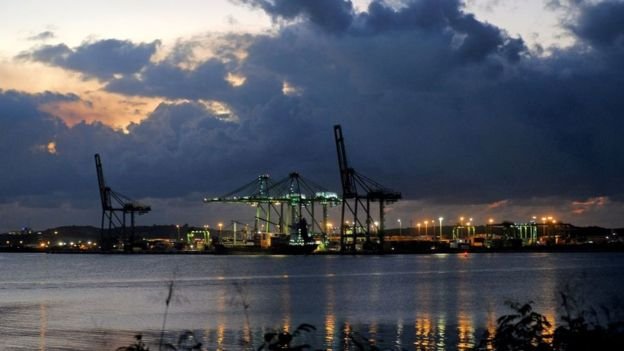
Before inaugurating the port of Mariel, Castro also renegotiated the debt with the Paris Club at the end of 2015.
At that moment, the debt was frozen for more than 30 years. Raúl obtained a condonion of US $ 8,500 million and his government committed to disburse US $ 2,600 million over a period of 18 years in order to access credits.
8- Term limits in political positions
Raúl Castro is no longer the president of Cuba by his own decision.
A proposal by him to the Communist Party of Cuba (PCC) ended up modifying the old form of government on the island and established limits on age and time for political office.
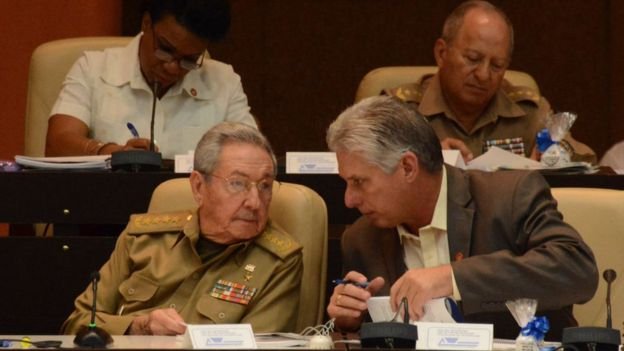
The mandates of the leaders were limited to two periods of five years and the 60 years was set as the maximum age to enter the Central Committee of the Party and up to 70 years for the leadership positions in the PCC.
Raúl leaves power and for the first time in more than half a century someone who does not wear the surname Castro assumes the reins of Cuba.
- This article is a version of the one that was originally published in the independent Cuban media El Estornudo. BBC Mundo reproduces it here with your authorization.
Source: https://infoglitz.com/perueng/8-things-that-raul-castro-did-in-his-12-years-as-president-of-cuba-and-that-fidel-did-during-50-has-denied-world-latin-america/
Not indicating that the content you copy/paste is not your original work could be seen as plagiarism.
Some tips to share content and add value:
Repeated plagiarized posts are considered spam. Spam is discouraged by the community, and may result in action from the cheetah bot.
Creative Commons: If you are posting content under a Creative Commons license, please attribute and link according to the specific license. If you are posting content under CC0 or Public Domain please consider noting that at the end of your post.
If you are actually the original author, please do reply to let us know!
Thank You!
Downvoting a post can decrease pending rewards and make it less visible. Common reasons:
Submit